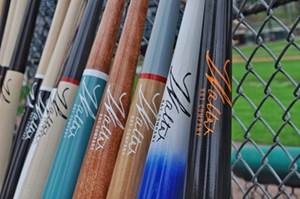CNC Swiss Delivers in Many Ways
Designed to efficiently process long, slender parts for the watch industry, the Swiss-type screw machine has evolved well beyond its original application niche.
Advances in CNC Swiss technology have helped these machines gain popularity in a range of industries ranging from medical and aerospace to automotive, electronics and general metalworking applications. When it comes to complex, precision parts with length-to-diameter ratios that are subject to deflection in the turning process, Swiss machines are able to deliver through the use of a sliding headstock that produces the Z-axis feed. A guide bushing supports the blank stock within the work zone of the machine while multiple axes of motion in the form of driven tools, subspindles, compound slides, thread whirling and rotary broaching attachments provide single-handling (done-in-one) production.
In its 10 years, Production Machining has spent a great deal of time covering Swiss technology. These machines play a huge role in the focus of the magazine—high production, high precision, small turned parts. Read on for a series of in-depth analyses of key components of the technology along with accounts describing Swiss technology in action, delivering the necessary performance to make complex parts complete in one setup.
Continuous Improvement Streamlines Throughput on CNC Swiss-Types
A family-owned job shop in the business of producing intricate audio components, shafts, rollers, forgings, castings, valve bodies, mounting plates and brackets set its sights on continuous improvement so it could deliver on the kinds of jobs company management saw as the future.
Higher complexity components in shorter runs with less lead time meant acquiring a more flexible Swiss CNC business platform. Its existing methods required secondary operations for many of the parts, and that was no longer an option. The solution needed to have multiple axes, be capable of machining parts as large as 20-mm diameter and have a high pressure lubrication system. On top of that, programming and operation would need to be easy. And third, reliable service and training resources were strongly desired.
Visit short.productionmachining.com/ziy1mriq to see how the Tsugami SS 20 Super Swiss Turn from REM Sales delivered on each of this shop’s important requirements, allowing it to implement new tooling strategies and consolidate operations for faster, higher quality production.
Swiss Shop Serves Medical and More
Although its end product has changed significantly in the 55 years this company has been in business, it still focuses on Swiss-type parts. The shop’s first significant contract was making phonograph needles, but now works with a diverse customer base in general manufacturing, and specifically, medical, automotive, electronic, plumbing, aerospace and sports equipment industries.
The company’s goal is diversity within the niche of Swiss machining. Its stable of more than 60 production machines includes coil-fed Escomatics, cam-driven Tornos and Strohm machines and Star CNCs. Parts range from 0.01 through 1.25 inches in diameter and 0.03 to 24 inches in length.
For more than 20 years, now, the shop has been a supplier to one of the world’s largest manufacturers of medical devices. Although this customer
represents only about 20 percent of the shop’s work, the relationship between the two sets the standard for promoting business growth. Visit short.productionmachining.com/ecafbpgw to see the strategies.
Swiss-Type Machines: More Than Just a Lathe
CNC Swiss-type machines have more capability built in than ever before. Many of these capabilities can be accessed using attachments that increase the throughput of the machine tool, improve the quality of the work coming off the machine and reduce or eliminate the need for secondary operations even for very complex workpieces.
Thanks to CNC technology and its ongoing improvements to machine design and tooling (along with competition, parts producing cost pressures and myriad application challenges), the capabilities of Swiss-type CNC machines continues to expand. They are truly much more than just a lathe, and they go way beyond the ability to produce screws.
The ability of these machines to make complex parts complete in one setup can partially be attributed to the addition of new innovations with live milling and drilling spindles, indexable turrets and advanced axis controls. To see the role that tooling and accessories play in helping to perform this cost-effective machining, visit short.productionmachining.com/wtja46kn.
Shop Finds Success with Swiss Machine and Tooling Technology
While foreign competition has dramatically altered the landscape of American manufacturing, many U.S. shops have survived by focusing on the areas where overseas companies simply cannot compete. High quality, quick delivery and personal relationships all present the opportunity for substantial differentiation.
To help support its efforts in these areas and keep up with customer demands, one shop made the decision to increase its precision capabilities and turnaround times. It was a decision that helped it remain competitive and profitable while other shops around them faded away.
Visit short.productionmachining.com/csx7weeq to see how the addition of a Citizen A20 Swiss turning center and Sandvik’s QS tooling system helped the company evolve its capabilities while remaining committed to quality and the development of strong personal relationships with customers.
Swiss Shop Shows Its Value
Every shop has its own way of communicating its strengths to customers on a regular basis to maintain current work and gain new business. While a number of factors can come into play, most often the big selling point is some combination of precision production capabilities, delivery time, customer service and price. If a shop can be competitive in all of these considerations, it has a good chance of landing the work it needs to succeed.
One manufacturer of high-precision Swiss products for the medical and aerospace industries went beyond the norm, though, to prove its value. Through the process of selling the company, employees found ways to exceed customer expectations from customer inquiry to product delivery. The addition of 13 new Hanwha CNC Swiss machines played a large role in this success. Read more about the operation at short.productionmachining.com/8seqpqfp.
Qualifying for Medical Work: Advice from a da Vinci Shop
Everybody seems to want a piece of the medical industry. But getting in is not necessarily easy as stringent requirements call for extremely complex parts from feisty, exotic materials, delivered certified with zero defects.
One shop has proven that even in a bad economy, with enough tenacity, making parts for the medical industry can be quite profitable. The company uses its extensive lineup of Tornos Swiss machines to produce critical pulleys, pins, shafts and actuating mechanisms for the da Vinci robot (along with various other medical and dental parts totaling about 30 million parts per year).
Go to short.productionmachining.com/gi11swrl to read this shop’s advice for how to get and keep medical customers.
High Speed Spindles for Swiss Machining
One of the main reasons that CNC Swiss machine tools play such a significant role in the precision machined parts industry is the versatility they bring to part production. Much of this versatility is represented by the machines’ ability to perform multiple operations, including turning, drilling and milling. While the turning capabilities of Swiss machines are well known, it’s the incorporation of what were once secondary operations, such as drilling and detailed milling, that is helping specialty machine shops and traditional turning shops to meet the need for processing workpieces complete in a single handling.
For small-diameter drills and mills, high rotational speed is critical to maximize feed rates and, in combination, provide productive cutting speeds. To handle these requirements, high-speed spindles have been developed to surpass the typical rpm limits, often reducing drilling cycle times (usually the slowest operation) by a factor of five.
Here’s a look at a line of micro-precision, high-speed milling and drilling spindles from Ibag that are designed specifically for the Swiss machine market. To see how auxiliary spindles are continuing to become smaller, yet more reliable with higher performance, visit short.productionmachining.com/qlirkgzc.
— Genevieve Swiss Industries Inc.
— Marubeni Citizen-Cincom Inc.
Related Content
Video: Why a Production Machine Shop Started a Baseball Bat Company
A 153-year-old manufacturer of precision, metal pins recently started a side business creating custom wooden baseball bats. The reasoning behind establishing this new company is intriguing, as is how it has helped create a stronger bond with the local community.
Read More5-Axis Machining Centers Transform Medical Swiss Shop
Traditionally a Swiss machine shop, Swiss Precision Machining Inc. discovers a five-axis machining center that has led the company to substantial growth. (Includes video.)
Read MoreLaser Technology "Turns" into a Turning Tool
This new technology uses a laser to act as a cutting tool to "turn" parts from solid barstock. This high-speed precision turning machine is especially useful for micromachining, enabling high accuracy for small, complex parts that are often delicate and difficult to machine when implementing conventional turning processes.
Read MoreShop Optimizes its Swiss-Turning Flexibility
Paramount Machine uses various Swiss-type lathes, some with a B axis, to produce parts more effectively than it did on conventional chucker lathes. Today, nearly every job under 1.5 inches in diameter runs across those machines even if the batch size is a mere 5 pieces.
Read MoreRead Next
Continuous Improvement Streamlines Throughput on CNC Swiss-types
Applying continuous improvement is how this Swiss shop keeps ahead of the crowd.
Read MoreHigh Speed Spindles For Swiss Machining
This article discusses the use of high-speed spindles in Swiss machining applications. Sufficient rotational speed is necessary to take advantage of tooling materials in small diameter cutters.
Read MoreQualifying for Medical Work: Advice from a da Vinci Shop
Swiss shop with heavy medical experience shares how to get and keep medical customers.
Read More


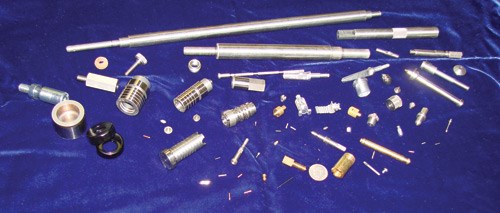
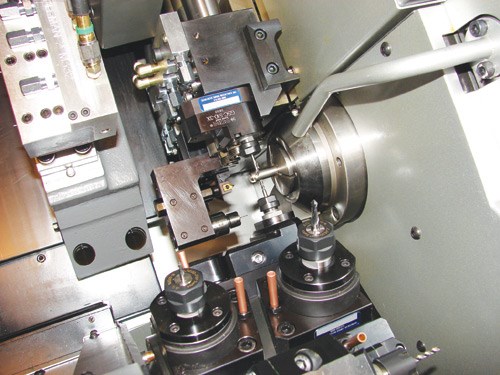
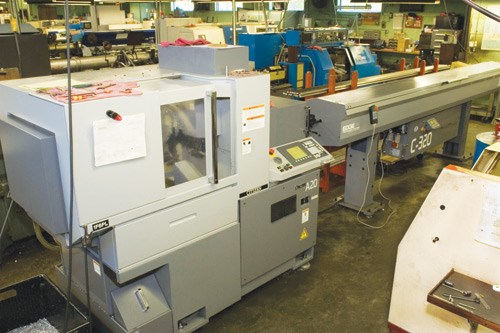
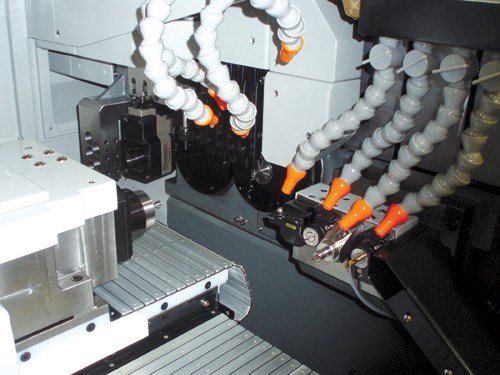
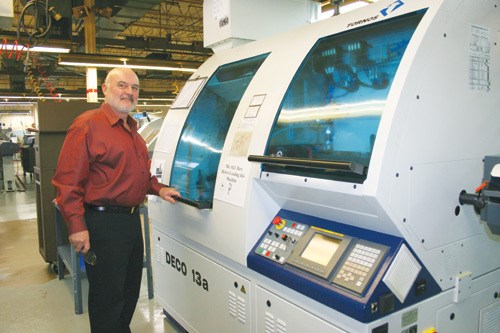
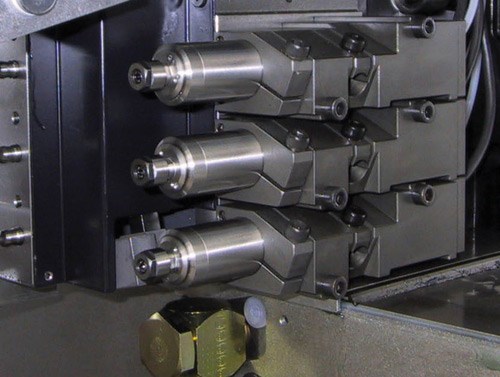







.jpg;maxWidth=300;quality=90)


.jpg;maxWidth=300;quality=90)


